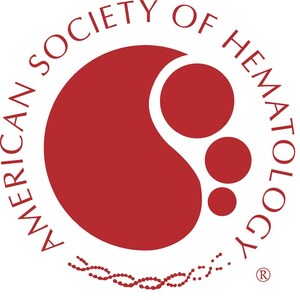American Society of Hematology Endorses New NHLBI Report on Sickle Cell Disease
Report illuminates important evidence gaps, Society calls for more research
WASHINGTON, Sept. 9, 2014 /PRNewswire-USNewswire/ -- The American Society of Hematology (ASH), the world's largest professional organization dedicated to the causes and treatments of blood disorders, today endorsed a new evidence-based expert panel report on the management of sickle cell disease published by the National Heart, Lung, and Blood Institute (NHLBI) aimed at improving the care of patients with sickle cell disease (SCD).
SCD is an inherited, lifelong disorder affecting nearly 100,000 Americans. Individuals with the disease produce abnormal hemoglobin which causes their red blood cells to become rigid and sickle-shaped. The sickle-shaped red blood cells block blood and oxygen flow to the body, leading to intense pain and other complications. Because SCD is a complex illness that affects multiple organ systems, few physicians specialize in SCD or can assume primary responsibility for a patient's care. Coordinated treatment continued across multiple settings, including primary care practices, specialist practices, emergency departments, and hospitals, is essential if patients are to receive adequate care. The new NHLBI sickle cell disease expert panel report released today is comprehensive, providing guidance for all clinicians who care for patients with SCD, from primary care physicians to specialists including hematologists.
While previous guidelines addressing care for SCD patients have addressed narrowly focused clinical questions, the expert panel report released today comprehensively addresses all aspects of care, including treatment of acute complications, management of chronic complications, and the use of disease-modifying therapies. The report is based on a systematic review of available evidence and consensus of an expert panel as well as published, vetted guidelines by other organizations when evidence was unavailable or insufficient. Included with each recommendation are descriptions of the strength of the recommendation and the quality of supporting evidence.
ASH supports the expert panel report based on its overall merits and potential to improve care, while recognizing the limitations of recommendations that are based on low-quality or insufficient evidence. Accordingly, the Society will serve as a key partner in ensuring that clinicians understand how to implement these new recommendations. ASH will produce several free pocket guides distilling the information for busy physicians and will also help clinicians interpret the recommendations through webinars and articles. In addition, the Society will host an interdisciplinary meeting in early 2015 with counterpart medical specialty groups to identify additional key messages and mechanisms for disseminating them.
While ASH views the new sickle cell disease expert panel report as a useful tool containing valuable clinical guidance based on existing knowledge, the Society recognizes the gaps in evidence revealed by this analysis. To that end, ASH recently released a list of research priorities for sickle cell disease and sickle cell trait that will require new and ongoing funding support in order to improve understanding of the disease.
"There are a number of areas where there is clinical consensus; however, many recommendations are not based on strong evidence," said ASH President Linda J. Burns, MD, of the University of Minnesota. "This report is an important statement of what is known about how to care for our sickle cell patients. However, the gaps in evidence are striking and should be a call to redouble our efforts to continue our search for a cure and, in the meantime, provide the best possible care to patients with sickle cell disease."
The American Society of Hematology (ASH) (www.hematology.org) is the world's largest professional society of hematologists dedicated to furthering the understanding, diagnosis, treatment, and prevention of disorders affecting the blood. For more than 50 years, the Society has led the development of hematology as a discipline by promoting research, patient care, education, training, and advocacy in hematology. The official journal of ASH is Blood (www.bloodjournal.org), the most cited peer-reviewed publication in the field, which is available weekly in print and online.
SOURCE American Society of Hematology
WANT YOUR COMPANY'S NEWS FEATURED ON PRNEWSWIRE.COM?
Newsrooms &
Influencers
Digital Media
Outlets
Journalists
Opted In





Share this article